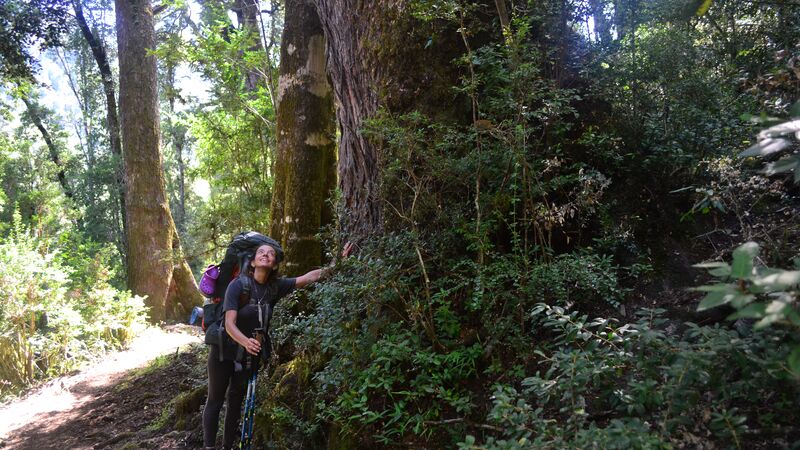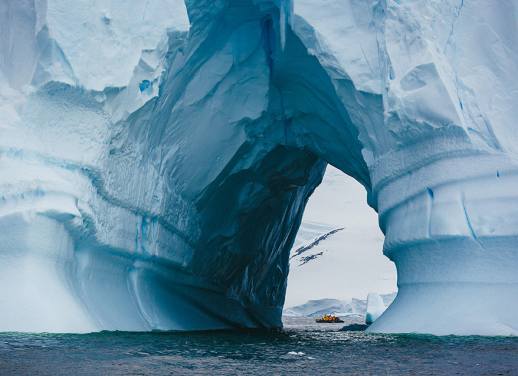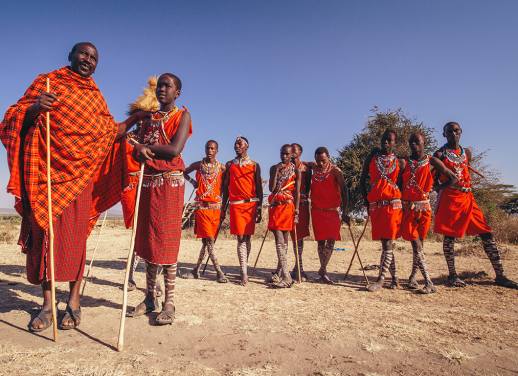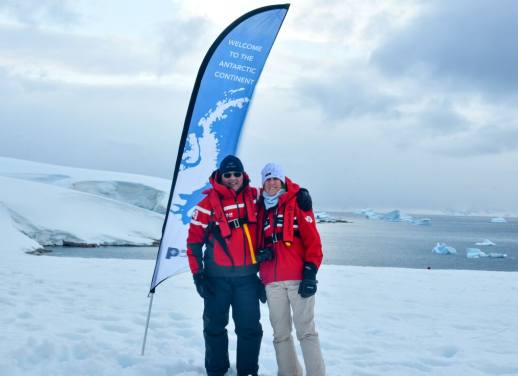The global pandemic has brought the world to a standstill and, in the process, destinations and communities who rely on travel and tourism for their livelihoods are facing a challenging and uncertain reality.
Moving into 2021 and beyond, the tourism sector has a unique opportunity to redesign old travel patterns for the benefit of local communities, the environment and tourists alike. The growth of tourism was on an unsustainable trajectory with issues like overtourism of popular destinations and carbon emissions from flying at the centre of debates, but with a rise in conscious travel and consideration for sustaining communities and regenerating the environment, there is hope.
The current global crisis also holds profound lessons that can help us address climate change — if we make greater economic and environmental resilience a priority as the world plans for the recovery ahead.
So, in case you missed them throughout the year with everything going on, here are some of Intrepid’s climate and sustainability initiatives that I am most proud of from 2020.
Declaring a climate emergency
Back in January before the effects of COVID-19 were being felt on a global scale, we declared a climate emergency with Tourism Declares, a global collective of tourism businesses, organisations and individuals who have pledged urgent action on climate change. As the world’s largest adventure travel company and a pioneer in sustainable travel for over 30 years, Intrepid has been a carbon neutral business since 2010 and in 2018 became the world’s largest travel business to be certified B Corp.
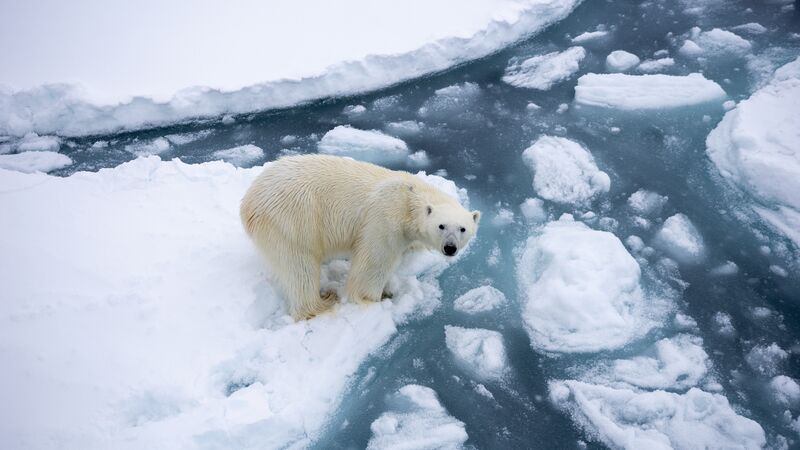
“Based on the facts we know today; we would be lying to ourselves if we were to continue as though the travel industry wasn’t contributing to the climate crisis.” Image by Justin Meneguzzi.
But we’ve recognised that being carbon neutral is no longer enough. Based on the facts we know today; we would be lying to ourselves if we were to continue as though the travel industry wasn’t contributing to the climate crisis. Carbon offsetting does not create a license to emit, but it does provide critical funding to projects that are providing clean energy, as well as projects that deliver social, cultural, economic or environmental benefits that work towards regenerating the planet.
So, we created a seven-point commitment plan to underpin our climate emergency declaration.
Our seven-point commitment plan
Our seven-point plan included the following commitments:
- To annually measure our emissions, from transport, to waste, to energy use – we need to know where our emissions are coming from so, we can understand how to limit them.
- To offset 125% of our emissions each year, starting in 2020. We expanded our carbon management program to offset sources of emissions beyond our trips and offices – like offsetting our customers’ flights, and double offsetting our Polar Expeditions.
- To set a science-based target to reduce emissions (more on this later!), to ensure our business will be on track for low-carbon growth.
- To transition to 100% renewable energy in all our offices around the world by 2025, and on our trips by 2030.
- To be the first travel company in Australia to invest in green deposits, which support assets and projects consistent with delivering a low carbon economy.
- To continue empowering women around the world to ensure sustainable growth, through projects such as Eden Reforestation Projects in Kenya.
- To continue to invest in research and innovative solutions. We’ve already raised more than $650K for the Seaweed project with the film 2040, the Climate Foundation and the University of Tasmania, and will be funding $100k for Antarctic climate change research in a bid to help preserve the Antarctic.
Setting verified science-based targets
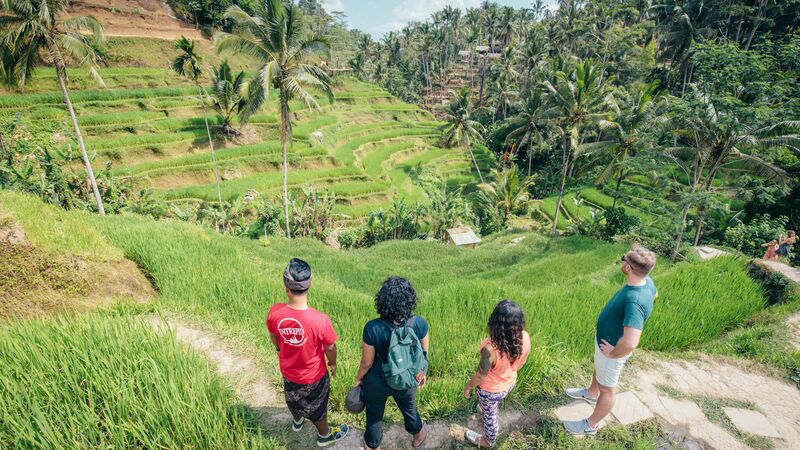
“Our hope is that we can use this a rallying cry to the entire industry to take meaningful collective action on climate as a critical priority in travel’s post-COVID recovery.” Image by Damien Raggatt.
I am thrilled to share with you all that we are the first tour operator with approved science-based targets, verified by the Science Based Targets initiative (SBTi). Business has a vital role to play in helping limit global warming to a maximum of 1.5°C and building the net-zero carbon economy of the future.
This is why Intrepid Travel has joined other companies to set a science-based emission reduction target and reduce our greenhouse gas emissions at the pace and scale that science says is necessary to limit global warming to 1.5°C. We are responding to a call-to-action for companies to set emissions reduction targets in line with a 1.5°C future, backed by a global network of UN agencies, business, and industry leaders.
Setting science-based climate targets will see us reduce our emissions across our operations and supply chains for a 1.5 future. Our hope is that we can use this a rallying cry to the entire industry to take meaningful collective action on climate as a critical priority in travel’s post-COVID recovery. We simply can’t rebuild at the expense of the planet.
Introducing regenerative travel
Asking “will my trip leave the planet in a better state than before?” is key to travel rebounding more responsibly. We can’t just focus on leaving lighter footprints. We must leave positive impacts on the people and places we visit, a concept known as regenerative travel.
Prior to the pandemic, the global tourism industry contributed to 8 per cent of global GHG emissions and accounted for one in 10 jobs around the world. In the future, regardless of where we go, adopting sustainable and regenerative travel practices has never been more important.
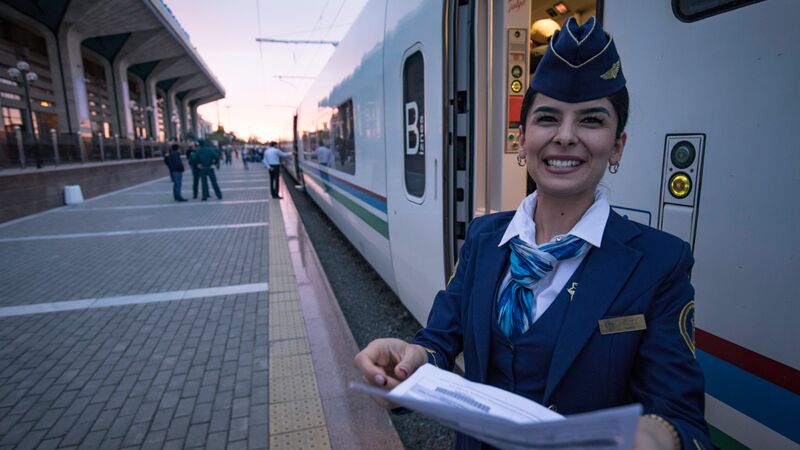
“While not always possible, choosing alternatives to air travel is among the most impactful ways to reduce GHG emission on your trip.” Image by Liam Neal.
While not always possible, choosing alternatives to air travel is among the most impactful ways to reduce GHG emission on your trip. As for getting to the starting point of one for our overseas trips, there is no perfect answer on this. However, in regions where it is possible to avoid flying, we encourage travellers to think about alternatives such as high-speed rail. And, if you can’t avoid flying then my motto is to ‘make it count’. For example, when flying to Germany from Australia to visit family, I made sure I also included a visit to Intrepid’s London office (using the Eurostar train to transit) and took time to attend a conference in Europe, so that my long-haul flight was put to good use!
We also encourage travellers to carbon offset their flights, regardless of whether they book them through us or another way. And from 2020, all customers who book their airfares with Intrepid will have their flight offset by us.
Looking to the future of the industry

“It’s our collective responsibility to ensure that the travel industry that is reborn out of this pandemic is one that gives back more than it takes away.” Image by Matt Cherubino.
COVID-19 has shown us that drastically reducing air travel is not the silver-bullet answer to neutralizing the climate threat. A multi-faceted approach is required, which includes governments, business operations, and consumer choices, with a focus on decarbonizing the travel industry through renewable energy, regenerative processes, sustainable development and building practices, climate-smart agriculture and circular economies and reductions in waste. To help other travel businesses on their journey, we published a ’10-step Quick Start Guide to Decarbonise your Travel Business’.
It’s our collective responsibility to ensure that the travel industry that is reborn out of this pandemic is one that gives back more than it takes away. Together we can do what it takes to preserve the planet for ourselves and the next generation of travellers and the communities that call these places home.
Do you want to learn more about Intrepid’s approach to responsible business and travel? Visit our website, or follow us on Instagram, Facebook or Twitter for updates.
–
Hero image by Martin Ruffo.

